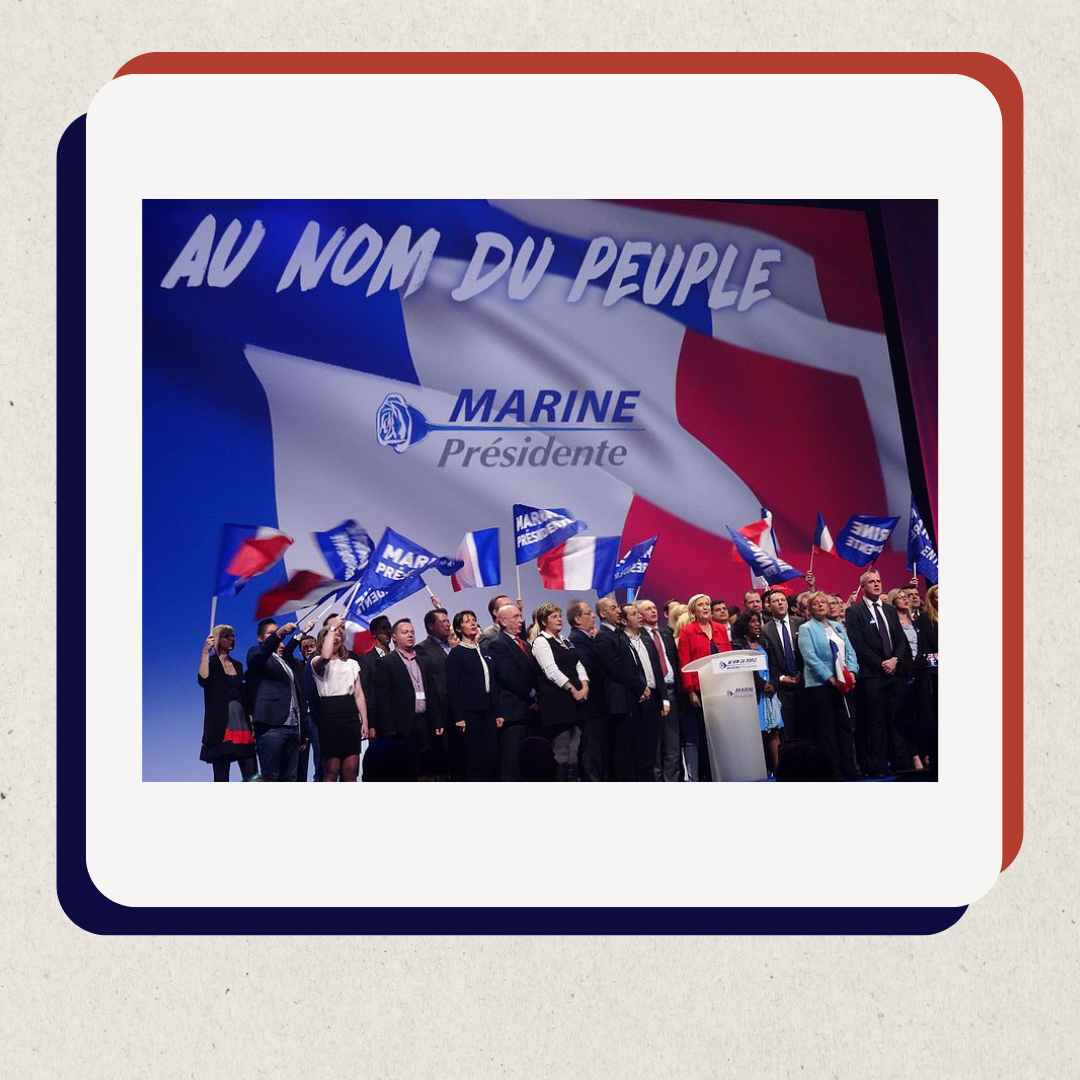
Written by Péter Emeneth and Georgiana Nicolescu. Edited by Mia Atanasova and István Zsifkó.
The National Rally is a French far-right political party, founded on the 5th of October 1972 described as right-wing populist and nationalist. It advocates significant cuts to legal immigration, protection of French identity and stricter control of illegal immigration. Throughout its history it has been dominated by the Le Pen family, and as of now Marine Le Pen is leading the party, having been accused of xenophobia, antisemitism, racism, misogyny and homophobia.
The National Rally emerged as a far-right nationalist party, attracting support from former soldiers and settlers disheartened by France’s withdrawal from Algeria. In its early years, it adopted rhetoric aligned with nationalist movements resisting decolonization. During the 80’s, Le Pen, the father of the now leader of the National Rally, remarked himself as one of the most divisive personalities in French politics and some of his public comments, that minimized the Holocaust, led to widespread criticism. After an alarming terrorist attack in Paris in November 2015 that resulted in 130 people losing their lives, the National Rally capitalized on growing anti-Islamic sentiment.
As of February 6, 2025, France’s domestic political landscape is marked by significant challenges, including governmental instability, economic concerns, and the rising influence of radical and extremist factions.
Governmental Instability and Economic Challenges
Prime Minister François Bayrou’s government recently faced two motions of no confidence following the adoption of the 2025 state budget without a parliamentary vote. Both motions, initiated by the leftist party La France Insoumise (LFI), were unsuccessful, securing only 128 and 122 votes respectively, far short of the 289 needed for a majority in the National Assembly. The Socialist Party’s decision not to support these motions and the National Rally’s (RN) abstention were pivotal in their failure. The 2025 budget aims to reduce the deficit by cutting spending and increasing taxes on wealthy individuals and corporations. Bayrou utilized special constitutional powers to pass the budget after his predecessor, Michel Barnier, failed to do so in 2024. The budget’s approval is now pending review by the Constitutional Council.
Rise of Radical and Extremist Factions
The political deadlock and economic challenges have contributed to public mistrust and dissatisfaction, creating an environment where radical and extremist groups are gaining traction. The far-right National Rally (RN), led by Marine Le Pen, has seen a surge in support, reflecting long-term social changes and concerns over national supremacy and immigration policies.
Upcoming Elections and Projections
Looking ahead, the political landscape remains uncertain. The RN’s growing popularity suggests it could perform strongly in future elections. However, the fragmented nature of French politics makes it challenging for any single party to achieve an absolute majority. Potential coalitions may be difficult to form due to ideological differences among political parties. The outcome of upcoming elections will significantly influence France’s political direction and its approach to addressing economic and social issues.
Sources used:
www.britannica.com

